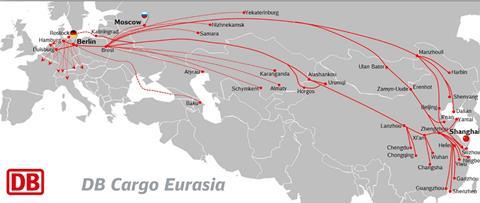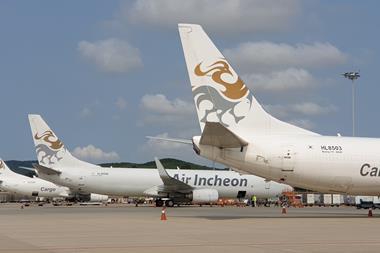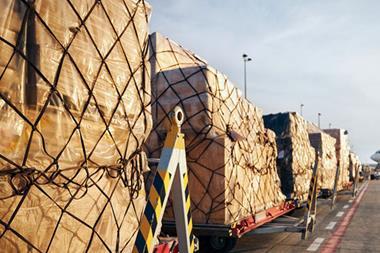
Germany’s DB Cargo has launched a subsidiary to make railfreight on the New Silk Road between China and Europe an attractive alternative to sea and air transport.
Europe's largest freight railroad has established DB Cargo Transasia to offer a variety of rail services on the more than 10,000 km trans-Eurasian corridor which will make railfreight “significantly faster than by container ship and costs only a tenth of comparable air freight services”.
A DB Cargo spokesperson said: “Climate-friendly and reliable rail freight transport is becoming increasingly important for global supply chains.”
The spokesperson added that with booming demand on the New Silk Road, DB Cargo Transasia will give its services in Asia a major boost.
“That's because DB Cargo is the only provider able to connect traffic on the New Silk Road to the European DB Cargo network. This link means there are now direct train connections to 18 European countries.”
DB Cargo Eurasia has opened several new routes between China and Europe this year, most recently the new Shanghai–Hamburg –Shanghai connection at the end of September. DB Cargo Eurasia currently handles transport on more than ten routes.
China was Germany's most important trading partner in 2020 – for the fifth year in a row. According to industry estimates, more than 12,000 trains travelled on the Eurasian corridor in 2020.
DB Cargo said that recent growth rates put the increase at 3,000 trains per year. DB also wants to further increase its transport capacity, from over 200,000 containers (TEU) on the Eurasian corridor in 2020 to 500,000 containers by 2025.
Added the spokesperson:”It makes good economic and environmental sense: Freight trains generate roughly 95% lower carbon emissions than airplanes and nearly 80% to 100% lower emissions than comparable road transport.










